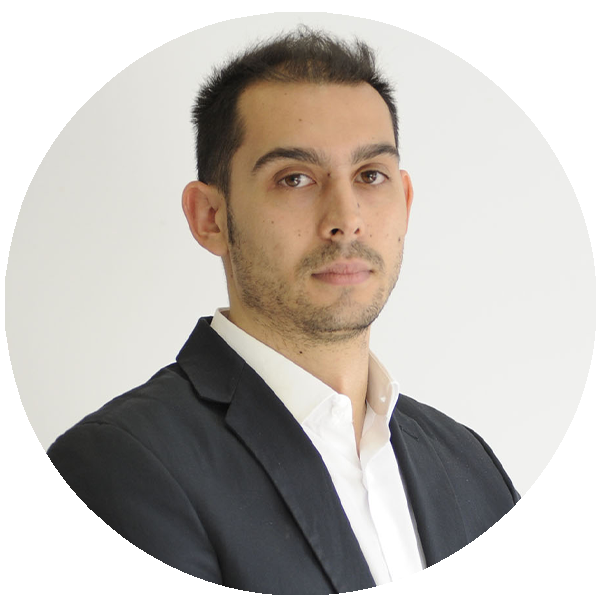#MIPexperience International Part Time MBA
A mind map for the motivational interview
| Author: Luca Bianchi, International Part Time MBA student

The motivational interview could be carried out by asking (and answering) only one question: “Why are you here?” − a simple, direct, genuine and essential inquiry with a huge range of possible answers. Open questions like this, such as the renowned “tell me about a topic of your choice” during an exam, are sometimes harder to answer than specific questions; you feel lucky because they seem simple to answer but at the same time, the pressure grows since you feel you cannot fail when presented with such a unique and unrepeatable opportunity. If you are used to answering direct and precise questions and are not expecting to speak about the wider scope, you should work on creating flexible structures that could help with both open and closed questions.I have quite a clear memory of my MBA motivational interview and I can remember a simple but tricky question I honestly hadn’t prepared for all that much, because I took it for granted: Why MIP? An MBA is obviously provided by so many institutes here in Italy, abroad and remotely. If you decided to apply for the School of Management of the Politecnico di Milano there must surely be a real and valid reason. My advice is not to consider this question as trivial and also to have an in-depth look at all the initiatives undertaken by the school, so as to be prepared.
Anyway, the topics which I think it is really important to focus on are these four as a minimum: the mental side, the practical side, the areas of improvement and behaviour and culture. You should create a mind map, tidying up all your thoughts with hierarchies, branches and sub-branches in order to get a blueprint that can help you when wider open questions are asked.
By the mental side, I mean all the thoughts about your professional life so far and your future vision. As far as the past is concerned, a misleading topic is your background: do two different people, with the same university degree and same experience in the same company have the same background? Definitely not, because what you have done in the past it is not what is important but rather, how your past experiences have forged who you are and what you think now. My advice is, when you are asked to talk about your background, always link the challenges you have faced with your actual behaviour. And it is the same for the present, your resumé surely explains what you are doing; you need instead to explain how your daily work is shaping your attitudes. When it comes to the future, you need to express your goals and your “vision”. Maybe it is not too much to talk about your “ikigai”, the reason why you wake up in the morning. If you are investing time, energy and money in a Master, is because you have realized that for you, work is not the means to earn a salary, but a way of expressing yourself. The “golden circle” by Simon Sinek, explained in one of the most viewed Tedx® videos, pushes you to focus on the “why” of your ideas and actions and only afterwards on the what and the how. Before my interview, I watched it several times to gather all the implied nuances.
The practical side is about the skills you have. Practical does not mean tangible − both hard and soft skills could be considered practical. With this term, I mean your ability to turn problems into solutions by using your skills. Saying that you are a heavy user of Excel is important, but you have to demonstrate that your ability to use Excel helps your department, or the organization, to achieve tangible results. You will not be accepted (and hired) because you have attended a course on coding or because you are an organised person; you will be chosen from among a list of candidates if you are able to demonstrate how to leverage your knowledge for concrete results. MIP is the business branch of a technical school but the importance they place on soft skills is high and the collateral lectures on these subjects are both current and numerous. Surely soft skills are difficult to define and measure, they are usually interpersonal and, even worse, sometimes you cannot learn them if you do not perform them. What helped me were examples from my life apart from working hours, sports-related and social activities.
The era of “tell me about three of your strengths and three of your weaknesses” is quite old-fashioned; of course this is a tricky question and the first time someone asks this, the interviewee has some difficulty for the same reason as for the open questions mentioned above. But then word spreads and before an interview, all the candidates prepare a short list of adjectives for their own convenience. I would focus and be prepared on areas of improvement. As seen before, you have a vision and goals; along the path you have acquired, learned and sharpened new skills but you have also realized that something is missing. Talking about any personal downside during an interview might seem like a not-so-savvy strategy: instead, I think that if you have in mind a well-structured gap analysis of what you need to reach your objectives and how to improve and offset the divide, this proves a high level of maturity.
Sometimes, the last lines of a CV are about hobbies or activities performed during your spare time; it seems as if we are forced to fill in some blank spaces and to write something appealing. Most of the time they are all the same: travel, sport, DIY, books, cinema and so on. Actually, the question behind these lines is not unimportant: “Who you are, apart from your job?” But can we consider ourselves to be two different entities, one who performs a job and one who simply “lives”? I think that our attitude, our way of approaching problems, our behaviour during working hours should reflect − or at least, be similar to − our behaviour at our place of work. Some executives I have met along my path were really good at other activities not directly linked to the job (e.g. marathon runner, videogame award winner, or guitar player). Behaviour depends on personal culture and if you also demonstrate your ability in other fields, you can prove a linear way of conducting yourself.
My last piece of advice is to consider the MIP motivational interview mostly as a personal review. More than an “exam”, my interview was a rich and fertile discussion. From my side, I talked about my expectations and doubts; the interviewer needed to understand the fit with my profile. At the end, I was even more convinced to become part of this school and if I were now asked to give one reason to choose MIP, I would definitely say because of its international vocation in every aspect of the path.
About the author
|
|
Luca Bianchi National Account Manager for a multinational logistics company and part of the young group of the Freight Leader Council, I would define myself as curious, ambitious and continuously disposed to improve. A strong supporter of cross-functional experiences, job rotation, teamwork and lifelong learning, my objective is to be constantly able to see challenges from different perspectives and to be adaptable in this ever-changing environment.. |






